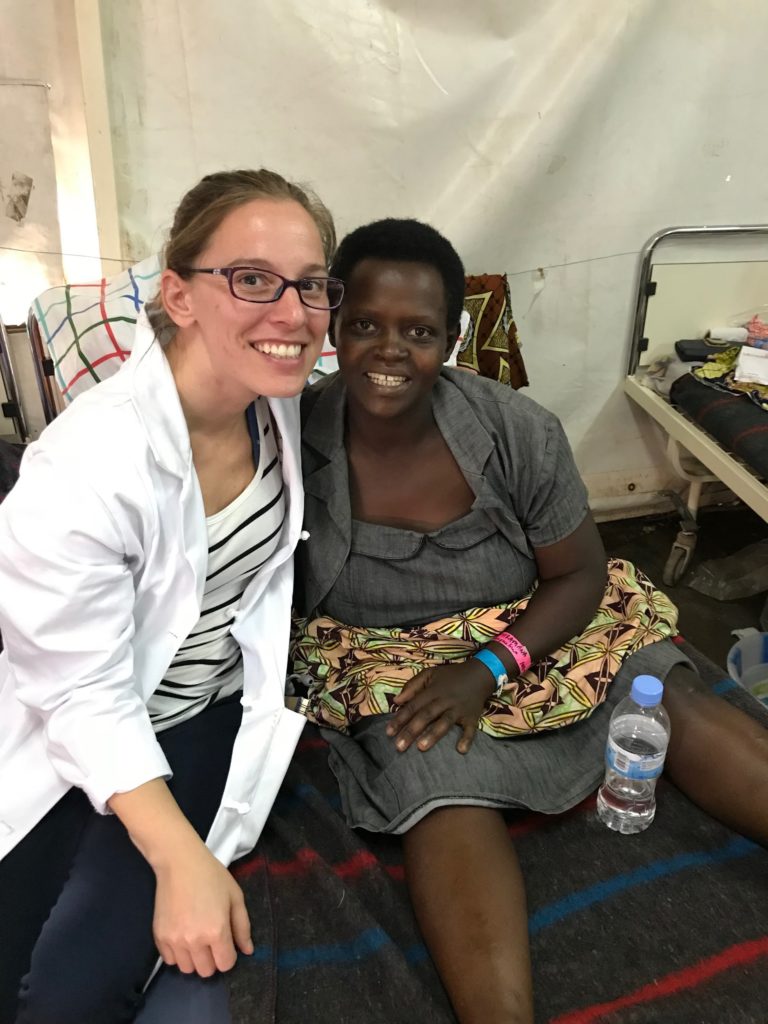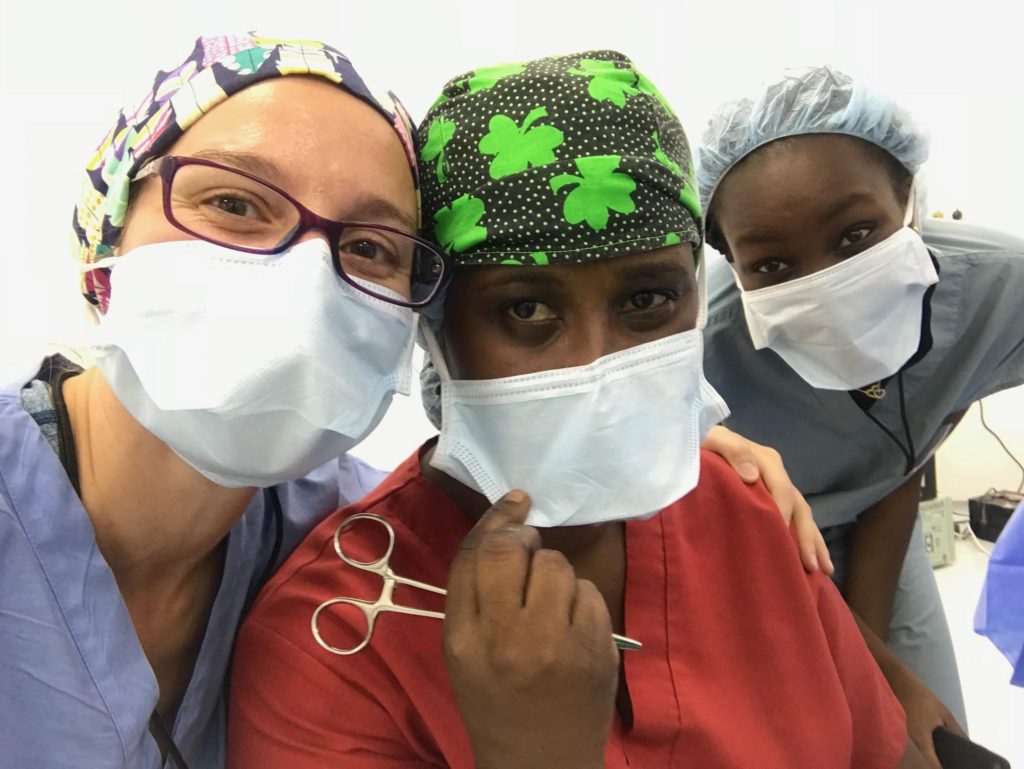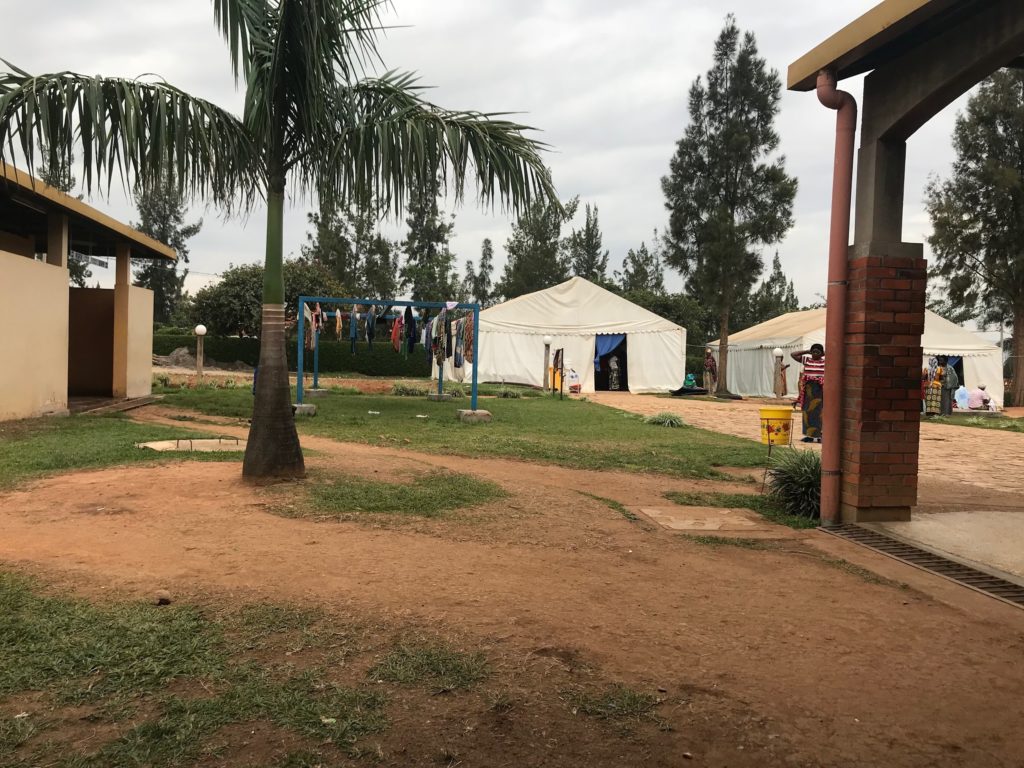International Organization for Women & Development – Caitlyn Painter, DO
Written by Caitlyn Painter, DO, Fellow at the Kaiser Permanente Northern California Female Pelvic Medicine & Reconstructive Surgery Fellowship Program while on Global Health rotation with the International Organization for Women & Development at Kabagabaga Hospital in Kigali, Rwanda in October-November 2018
Obstetric fistula is a complex and vexing problem, with the majority of women affected residing in sub-saharan African. Given the medical infrastructure in these resource limited countries, it is difficult to estimate the true incident of fistula, however the WHO estimates around 33,000 new obstetric fistulas per year in sub-saharan Africa. Our two week mission was structured around providing surgical care for Rwandan women suffering from fistula. The IOWD, the International Organization for Women’s Development, is a 501(c)(3), that has an ongoing partnership with the Rwandan ministry of health, as well as Kibagabaga hospital in Kigali, Rwanda. Surgical mission teams travel here, three times a year, since 2010.

The mission starts out with clinical evaluation of women complaining of fistula symptoms, which may include constant leakage or urine or feces from the vagina, usually since the birth of a child. These women travel from…
all over the county, sometimes on the back of a bicycle. Women will remain at the hospital until their surgery is completed and they are stable postoperatively. Surgeries are prioritized by level of difficulty, with the larger surgeries completed earlier on, to facilitate post-operative follow up. Surgeries performed include: abdominal vesico-vaginal fistula repair, vaginal vesico-vaginal fisutula repair, recto-vaginal fistual repair, pelvic organ prolapse procedures, stress incontinence procedures, cystoscopy, and ureteral stenting.
Post-operatively, women are in the hospital ward, until stabilized. They are then transferred to a tent location, where they can stay until they are able to go home, and their urinary catheter removed. We work closely with the Rwandan medical staff, allowing for care provided in kinyarwandan, as well as ongoing medical education. Additionally, there is a group of Rwandan medical students, who are selected after and application process, to work with our mission. They are involved in all aspects of the medical care, from intake history and physicals, to scrubbing into the OR, and presenting on postoperative rounds. We provide them with formal and informal lectures during our stay.
This experience was rewarding in so many ways, and I am a better physician, surgeon and human because of this. Not only did I learn about providing care in resource limited settings, but I also experience pathology rarely seen in the United States. I was humbled by the grace and gratitude of our patients, as well as their resilience. My goal is to continue to work with women suffering from fistula, and maintain a partnership with the IOWD.
The pictures below include:
- Myself with a patient, postoperative rounding in the tent
- Myself training a Rwandan surgical scrub tech and medical student
- A picture of the tents in the Kabagabaga hospital


